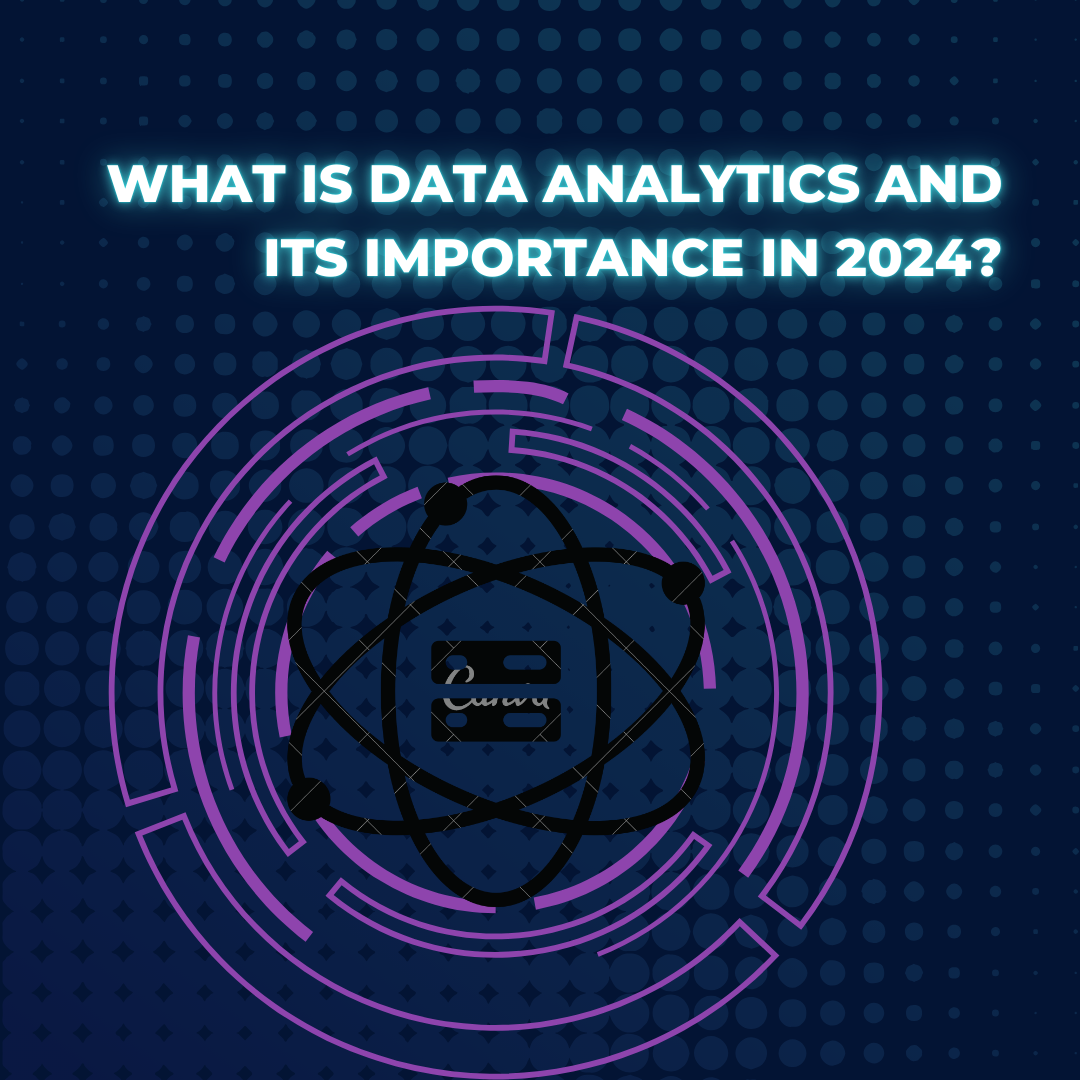What is Data Analytics and Its Importance in 2024?
 Ruhi Parveen
Ruhi Parveen
Introduction to Data Analytics
Data analytics refers to the process of examining datasets to draw conclusions about the information they contain. This analysis is done using specialized systems and software. In today's data-driven world, data analytics helps organizations make informed business decisions, improve operational efficiency, and enhance customer experiences.
The Evolution of Data Analytics
businesses used simple tools like spreadsheets to analyze data. However, with the advent of big data, machine learning, and artificial intelligence, data analytics has become more sophisticated. Today, it encompasses various techniques and tools, including statistical analysis, predictive modeling, and data mining.
Key Components of Data Analytics
Data Collection: Gathering data from various sources such as databases, social media, and IoT devices.
Data Analysis: Applying statistical and computational techniques to identify patterns and trends.
Data Interpretation: Drawing meaningful insights from the analyzed data.
Data Visualization: Representing data in graphical formats to make it easily understandable.
Types of Data Analytics
Diagnostic Analytics: Examines data to determine why something happened.
Predictive Analytics: Uses historical data to predict future outcomes.
Importance of Data Analytics in 2024
1. Enhanced Decision-Making
Data analytics provides organizations with actionable insights that lead to better decision-making. By analyzing data, businesses can identify trends, understand customer preferences, and forecast future demands. This leads to more informed strategic planning and a competitive edge in the market.
2. Improved Customer Experience
Understanding customer behavior is crucial for businesses. Data analytics helps companies personalize their offerings, improve customer service, and enhance overall customer satisfaction. In 2024, businesses that leverage data analytics to understand and anticipate customer needs will likely outperform their competitors.
3. Operational Efficiency
By optimizing operations, companies can reduce costs, increase productivity, and streamline processes.
4. Innovation and Product Development
With insights gained from data analytics, companies can innovate and develop new products that meet market demands. In 2024, businesses that use data to drive innovation will be better positioned to create products that resonate with their target audience.
5. Risk Management
By analyzing historical data, businesses can predict potential risks and take proactive measures to avoid them. This is especially relevant in sectors like finance, where risk management is crucial.
6. Competitive Advantage
Data analytics provides businesses with the tools to understand market trends, monitor competitors, and adapt quickly to changing conditions. Companies that effectively use data analytics will have a significant advantage over those that do not.
Trends in Data Analytics for 2024
1. Artificial Intelligence and Machine Learning
AI and machine learning are transforming data analytics by enabling more accurate predictions and automating complex tasks. In 2024, we can expect to see increased adoption of AI-driven analytics solutions that provide deeper insights and faster results.
2. Real-Time Analytics
The demand for real-time data analysis is growing as businesses need to make quick decisions. Real-time analytics allows organizations to process and analyze data as it is generated, providing immediate insights and enabling rapid response to market changes.
3. Cloud-Based Analytics
Cloud computing is making data analytics more accessible and scalable. Cloud-based analytics platforms offer flexibility, cost savings, and the ability to handle large datasets. In 2024, more businesses will migrate their analytics operations to the cloud to take advantage of these benefits.
4. Data Privacy and Security
Businesses must ensure they comply with regulations and protect sensitive information. In 2024, there will be a greater focus on implementing robust data security measures and maintaining customer trust.
5. Augmented Analytics
Augmented analytics leverages AI to enhance data preparation, analysis, and visualization. This trend is making data analytics more user-friendly and accessible to non-technical users. In 2024, augmented analytics will continue to grow, enabling more people to gain insights from data.
Applications of Data Analytics in Various Industries
1. Healthcare
Data analytics is revolutionizing healthcare by improving patient outcomes, enhancing diagnosis accuracy, and optimizing treatment plans. Predictive analytics can foresee patient deterioration, enabling timely intervention and reducing hospital readmissions.
2. Retail
Retailers use data analytics to understand customer behavior, optimize inventory, and personalize marketing efforts. By analyzing sales data, retailers can forecast demand and manage stock levels effectively.
3. Finance
In the finance industry, data analytics helps in risk management, fraud detection, and investment decision-making. Predictive models analyze market trends and economic indicators to provide investment insights.
4. Manufacturing
Manufacturers use data analytics to improve production processes, reduce downtime, and enhance product quality. Predictive maintenance models help identify potential equipment failures before they occur, minimizing disruptions.
5. Marketing
Marketing professionals leverage data analytics to measure campaign effectiveness, understand customer segmentation, and optimize marketing strategies. By analyzing customer data, marketers can create targeted campaigns that drive higher engagement and conversions.
Conclusion
Data analytics is an indispensable tool for businesses in 2024. It empowers organizations to make data-driven decisions, improve operational efficiency, enhance customer experiences, and stay competitive. As technology continues to advance, the importance of data analytics will only grow, making it a critical component of any successful business strategy. Embracing data analytics and staying abreast of the latest trends will enable businesses to thrive in the data-driven era. For those looking to gain expertise in this field, enrolling in a Data Analytics Training Institute in Delhi, Noida, Mumbai, Indore, and other parts of India can provide the necessary skills and knowledge to excel.
Subscribe to my newsletter
Read articles from Ruhi Parveen directly inside your inbox. Subscribe to the newsletter, and don't miss out.
Written by

Ruhi Parveen
Ruhi Parveen
I am a Digital Marketer and Content Marketing Specialist, I enjoy technical and non-technical writing. I enjoy learning something new.